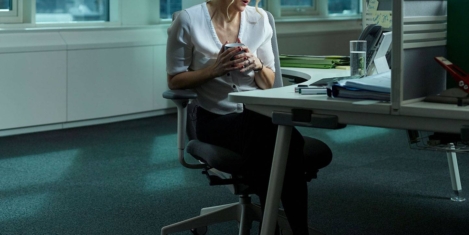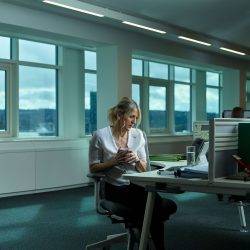April 24, 2018
Reimagining the built environment would transform people’s lives, claims Design Council
 The Design Council and Social Change UK has launched its Healthy Placemaking report which highlights the outcomes from their survey of over 600 built environment practitioners across the UK including architects, town planners and urban designers. The aim of the survey was to gain insight and understanding of their experiences across multiple areas on the creation of a healthy built environment. The latest research from Design Council and Social Change UK claims that healthy placemaking can ‘sit outside mainstream UK housing, public health and placemaking policy. It continues to be seen as a cost to local development rather than an investment, and when considered alongside the plethora of local planning priorities and frameworks it often gets overlooked’.
The Design Council and Social Change UK has launched its Healthy Placemaking report which highlights the outcomes from their survey of over 600 built environment practitioners across the UK including architects, town planners and urban designers. The aim of the survey was to gain insight and understanding of their experiences across multiple areas on the creation of a healthy built environment. The latest research from Design Council and Social Change UK claims that healthy placemaking can ‘sit outside mainstream UK housing, public health and placemaking policy. It continues to be seen as a cost to local development rather than an investment, and when considered alongside the plethora of local planning priorities and frameworks it often gets overlooked’.






 More than half of working adults believe that UK businesses are not doing enough to support the physical and mental wellbeing of their employees. The vast majority (86 percent) believe that firms are specifically not doing enough to help employees deal with work-related stress, anxiety and other mental health issues. And with seven out of 10 of those surveyed by
More than half of working adults believe that UK businesses are not doing enough to support the physical and mental wellbeing of their employees. The vast majority (86 percent) believe that firms are specifically not doing enough to help employees deal with work-related stress, anxiety and other mental health issues. And with seven out of 10 of those surveyed by 














 Almost one in two working age adults currently lack numeracy skills and this skills gap is estimated to cost businesses £3.2bn annually, with a cost to the UK economy of up to £20.2billion a year. This is why charity National Numeracy has joined together with founder supporter, KPMG, to establish the first ever UK National Numeracy Day – created to drive a change in recognition of the importance of numbers, as well as improve employee careers. The day, which takes place on the 16th May will be designed to celebrate numbers, and aims to help individuals to check their numeracy levels, and provide free tools to support improvement amongst those who could benefit. Businesses are being called on to get involved in a variety of ways; from becoming an official supporter, to encouraging employees, suppliers and the local community to check their numeracy levels using the
Almost one in two working age adults currently lack numeracy skills and this skills gap is estimated to cost businesses £3.2bn annually, with a cost to the UK economy of up to £20.2billion a year. This is why charity National Numeracy has joined together with founder supporter, KPMG, to establish the first ever UK National Numeracy Day – created to drive a change in recognition of the importance of numbers, as well as improve employee careers. The day, which takes place on the 16th May will be designed to celebrate numbers, and aims to help individuals to check their numeracy levels, and provide free tools to support improvement amongst those who could benefit. Businesses are being called on to get involved in a variety of ways; from becoming an official supporter, to encouraging employees, suppliers and the local community to check their numeracy levels using the 









April 25, 2018
A few demonstrable truths about agile working that aren’t talked about enough
by Sarah Booth • Comment, Workplace design
(more…)